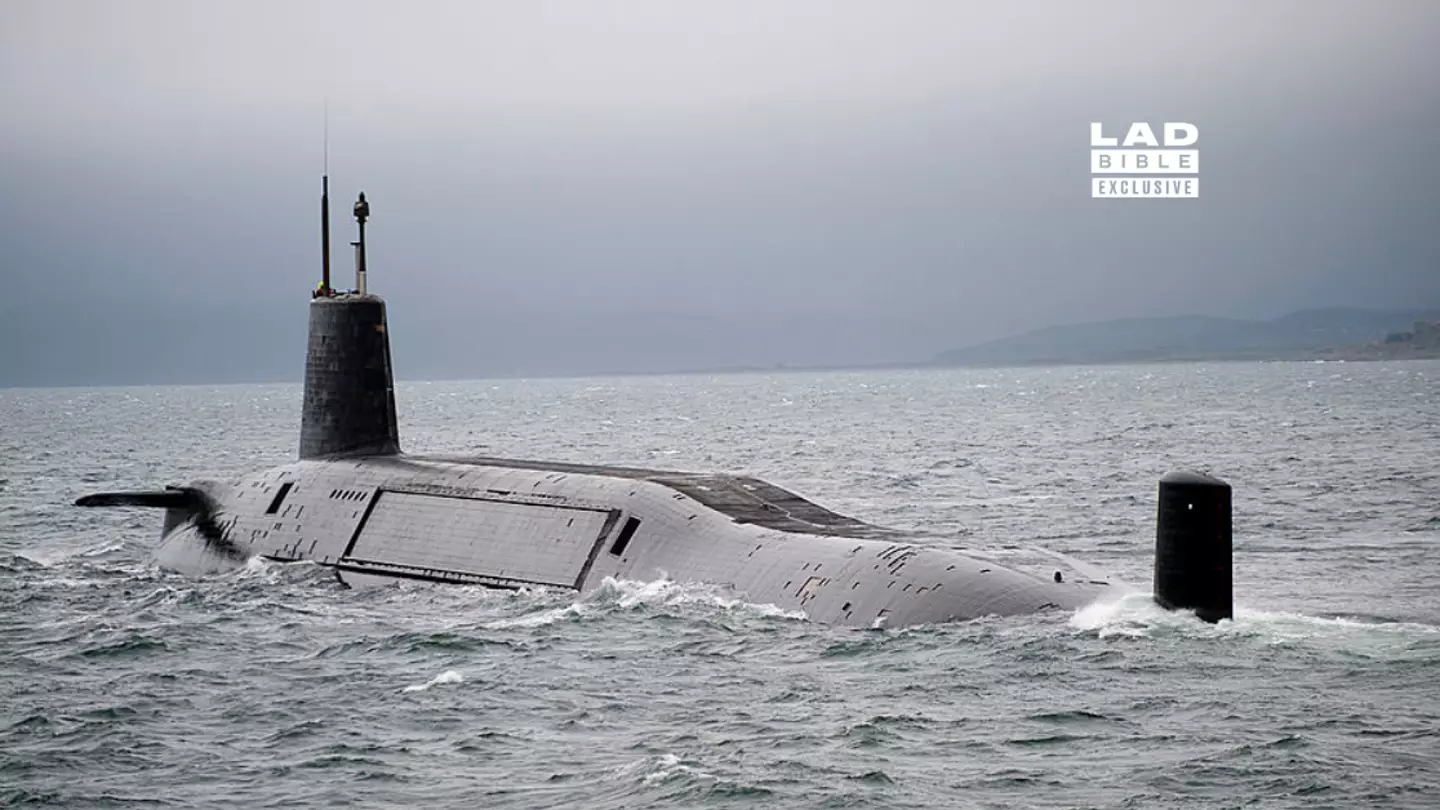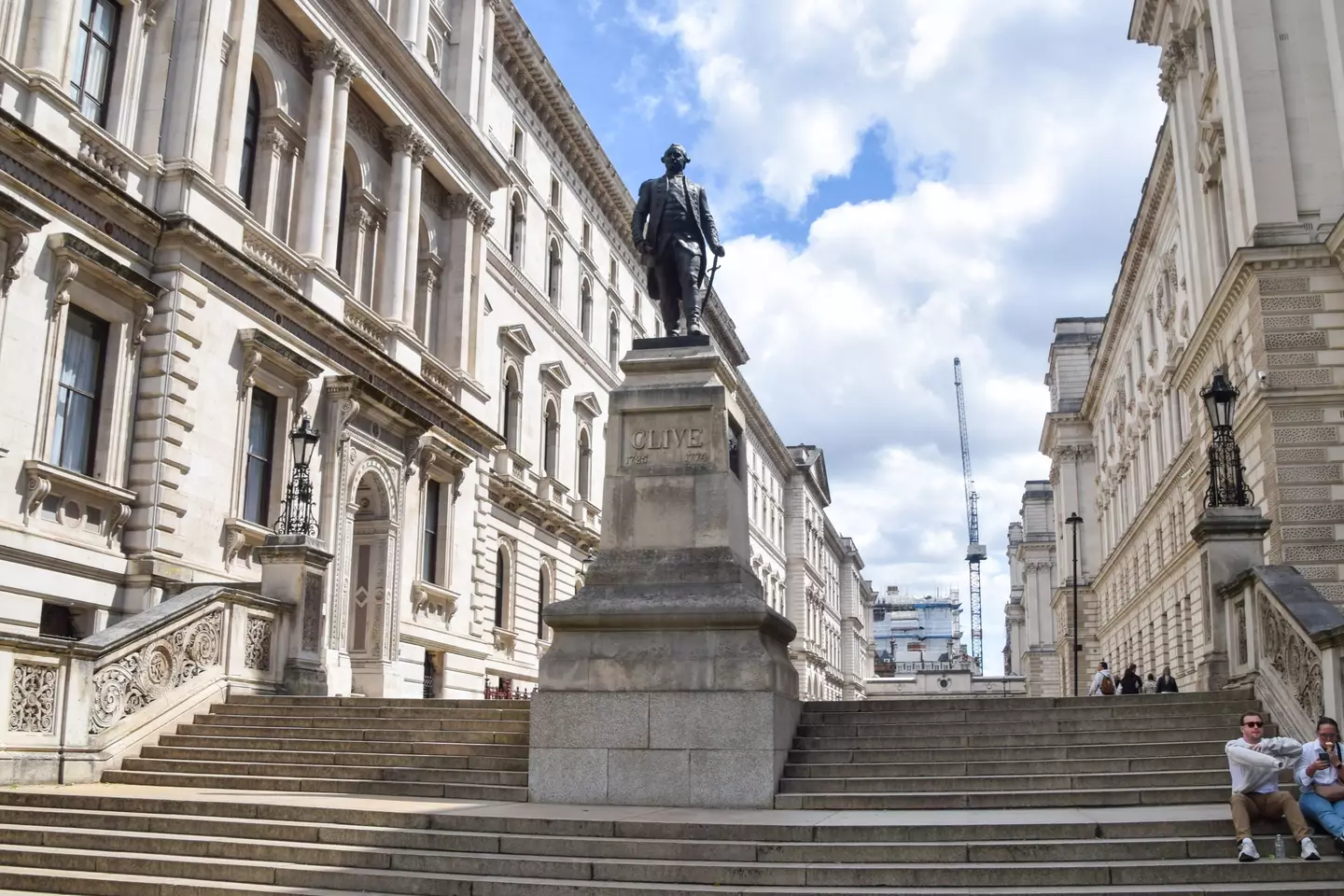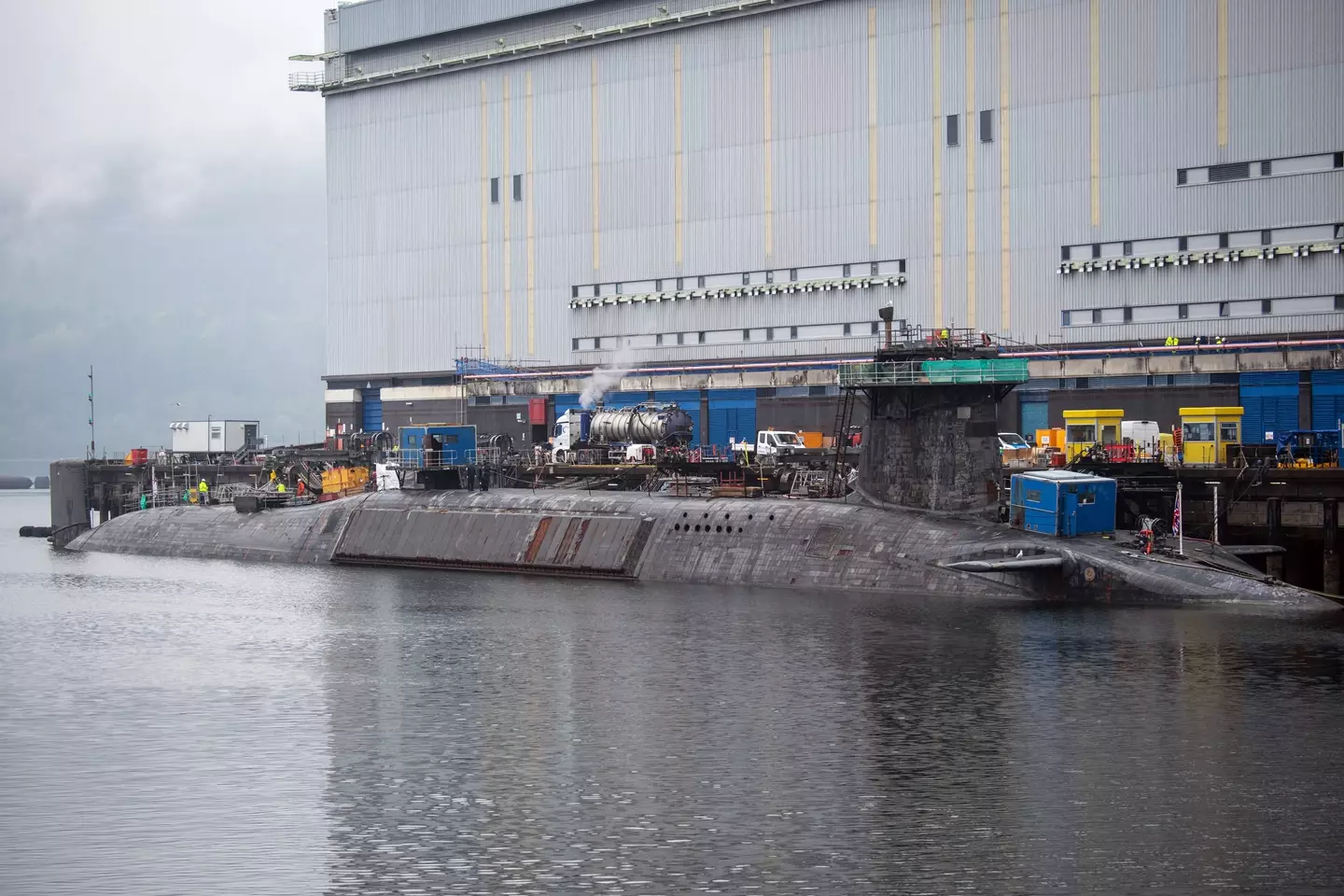
A defence expert has laid out the step-by-step response the UK government would have in the case of a nuclear attack.
It's the sort of outcome everyone hopes remains a hypothetical, but even if we hope for the best it is prudent to plan for the worst.
Speaking to LADbible, Tim Ripley, editor of Defence Eye explained that it would be 'pretty unlikely' for the UK to be attacked with nuclear weapons and suggested that such a rare outcome would stem from 'part of an escalating international crisis'.
Ripley explained that some kind of conflict dragging in Britain and NATO could escalate to the point that the government started to make preparations for a nuclear attack.
Advert
If an attack did come then the most likely culprit would be Russia, given they're 'the only people in our sort of neighbourhood with nuclear weapons' as Ripley puts it.
They also do like to talk about the prospect of nuking the UK, so if it's going to be any country which presses the button it's probably them.
.jpg)
Step 1: The Bunkers
"The British government has this thing called, it's called Transition to War, where key parts of the government are dispersed," Ripley explained of what would happen before there was any indication of a weapon being launched.
“For example, the government have command bunkers, underground facilities where various ministers, the prime minister would be moved to, rather than being in their offices in Downing Street, which could be hit by surprise."
However, the expert explained that the UK has fewer bunkers than it used to do during the Cold War, and that government operations would likely be moved to 'some very small facilities under Whitehall'.
Professor Andrew Futter of the University of Leicester also spoke of the government bunkers beneath Whitehall as the most likely place they'd rush VIPs to.
The dramatic idea of the world being caught on the hop by a nuclear attack and a major rush for the bunkers may work well in movies, but if the situation has reached a point where someone might press the button then the government would already likely be working out of places designed to survive a blast.

Step 2: The early warning system
Should a nuclear missile be fired our way then we will know about it, in part thanks to the installation at RAF Fylingdales which has a 'ballistic missile warning system'.
Should we be attacked then according to Ripley they would be the first to know and it would be their job to raise the alarm.
He said: "That is able to, in theory, detect incoming Russian ballistic missiles. These are the big ones.
"So when they get a warning that it’s all escalated and we're having a nuclear attack the idea is that they flash the warning to the prime minister, who can prepare himself for retaliation."
As for everyone else, this is about the time we'd find out thanks to the mobile phone alert system that makes your phone scream out in warning.
It would not be long before the entire country knew what was coming, but sadly that does not translate into being able to stop it.
The UK's nuclear defence is its deterrent, an arsenal of warheads which could be fired back at any country that attacked.

Step 3: Retaliation
“Britain has always said it wouldn't strike first, so the expectation is that they would wait until Britain had actually been hit before ordering a retaliation," Ripley explained of how long the UK would be expected wait if a nuclear attack was on its way.
“Because the fear is it's a false alarm. Is it really a warhead? You’re not really sure until it goes off. And anyway, if it's on its way at that stage, you can't actually stop it.
“So at the moment, the British doctrine that the established procedure, which we all think they're going to follow, is they would wait until a hit and then order retaliation."
The decision rests with Prime Minster Sir Keir Starmer, or whomever holds the job at the time this hypothetical attack would come.
However, there is a 'problem' with this according to the expert as if the prime minister and the cabinet are all wiped out in the first strike then things become difficult.
Ripley explained there would be a chain of command and the decision could pass to other members of the cabinet who could essentially become the new prime minister and 'have the authority to retaliate'.
In any case, should that happen then the order on what to do has already been given.

Step 4: Letters of Last Resort
Within a safe in each of the UK's submarines carrying nuclear weapons is a letter written by the prime minister shortly after taking office.
If the UK has been struck by a nuclear attack and the submarine commanders are sure that the entire command structure has been wiped out then they will open the Letter of Last Resort which contains orders on how to respond in the event that the UK has been attacked and there is nobody else to give orders.
Ripley said: "By legend, one of the checks to find out if Britain has been obliterated is they go up to periscope depth and try and find out if they can listen to the Radio 4 Today programme, which is famously a live radio show.
"If the BBC are knocked out then it's all over, isn't it? So [the captain] goes to his safe, gets the letter out, and that allegedly tells him what to do.
"Does he fire, retaliate? Does he offer himself to command of our American allies, or does he go to Canada? No one really knows, because they are supposedly top secret."
Nobody besides the prime minister knows what those letters say, and when Starmer leaves office the letters will be destroyed without being opened as has happened to those written by his predecessors.

Step 5: Dealing with the aftermath
Back when it released, Ripley says that the iconic nuclear apocalypse movie Threads was quite accurate as the filmmakers 'got a hold of some of the government Civil Defence manuals'.
However, much of what was depicted there is now gone in the aftermath of the Cold War.
He said: “We've reduced our preparation to basically maintaining our, this is the jargon phrase, maintaining our Release Authority System.
“You know the ability of the prime minister to say fire or not fire, but all the other preparations for transition to war have been allowed to atrophy and been disbanded."
The Local Resilience Forums, which helped deliver food and PPE during the pandemic, would be tasked with trying to help out, but the pressure even one nuclear missile would place on the country would be huge and services would be 'utterly overwhelmed'.
Describing a hypothetical scenario where a nuclear bomb hit London, Ripley said we would be 'talking about hundreds of thousands dead' and a similar amount so badly burned that an NHS pushed far beyond breaking point would have little choice but leave them to die.
On top of that he said there would be millions of 'walking wounded' who would require treatment.
One of the greatest dangers to life would be modern cities, with Ripley explaining: "When you apply a nuclear weapon to a modern city you turn all the buildings into projectiles from the blast effect.
"Every single window in London becomes a projectile, so that the potential for horrendous injuries are exponential, off the chart."
It would certainly seem that the best outcome for everyone would be for nobody to ever fire nuclear weapons.
Topics: UK News, Politics, World News, Russia